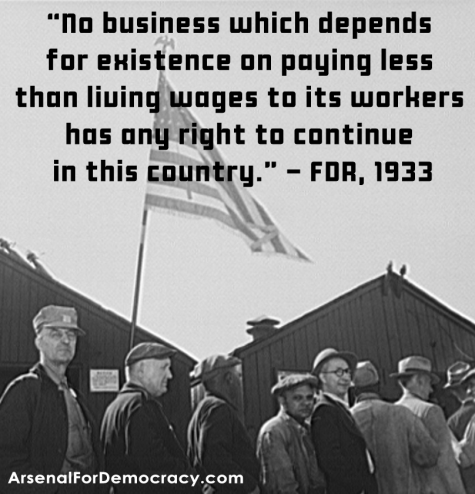I’ve been a bit concerned of late that the Democratic Party isn’t offering much of a vision to compete with the Republican misery machine. What little has been offered is just that – little. It doesn’t go big. It doesn’t present principles and then offer big ideas to fulfill those principles. So, here are some ideas:
– Everyone fed. Everyone clothed. Everyone housed. Everyone educated. Everyone healthy or being treated. Everyone employed if they can work.
– A Constitution that allows the people to govern themselves. A Government that lifts up its people and does not oppress them.
These are not radical ideas. These are basic ideas. These are not optional ideas. These are necessary ideas. When I say everyone, I mean everyone. This isn’t just an “economics” platform. This is an equal rights platform.
We have to restore our government and restore our vision if we’re going to have communities and a country that meet our founding promises. We can only accomplish big things if we’re willing to imagine that accomplishing big things is possible – and then try.
The American Dream is a popular rhetorical allusion for politicians, as I explored in my research book. But the American Dream is only possible when our leaders are willing to dream big too – to dream up new ideas to help keep and make the Dream real. Every era in American history when there has been opportunity for an entire generation to advance, big creative policies have led the way.
We need bolder leadership for the post-Soviet age and the Internet-access age than we have had so far, particularly since those turning points are themselves decades old.
I don’t want our vision to be constrained by achievements we made 50 or 80 or 100 years ago. I want us to come up with – and then implement – ideas they’ll be talking about 100 years from now.
“We Can Do Better”
“Big government, for the few or the many?”
Abstract from: “I Accept Your Nomination: American Dream Rhetoric in Presidential Nomination Acceptance Speeches, 1932-2008”








